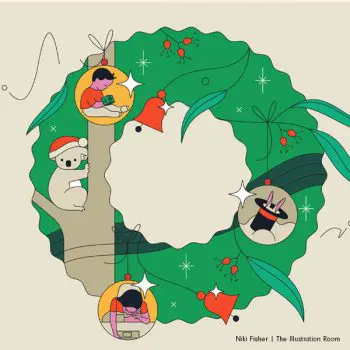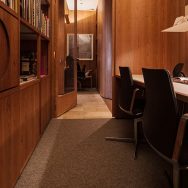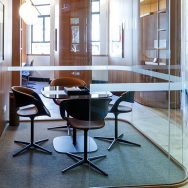Sam Christie knows a thing or two about what people like to eat and drink, and where and why they like to do it. As the co-founder of some of Australia’s best restaurants, including Longrain, The Apollo and Cho Cho San, Christie has spent more than two decades in the hospitality industry, where he first cut his teeth with a high school job at the Bayswater Brasserie. Here he explains how the drink and dine experience is changing, and why social media has killed the surprise element when it comes to plating up.
How did you get your start in the hospitality industry? I started working in my school holidays at the famous Bayswater brasserie in the mid 80 as a school holiday job. It was a real institution so a great place to learn: I was setting tables, squeezing juice, taking deliveries, stocking the fridge and cleaning and polishing. My next move was to Centennial Park Café, where I saved up to travel overseas. That opened my eyes to other styles of dining and the more casual, southern European approach, especially in Spain and Greece. I lived in London for a year and worked on the opening of a Quaglino’s, the first Conran Group gastro temple, where I even put a plate down in front of Princess Diana. When I returned to Australia I worked at Tetsuya’s and Bilson’s before deciding to open my own place, which was Longrain.
Longrain exemplified the buzzy, in-the-moment hedonism that has come to define your restaurants. How do you create places that pulse and have the X-factor? It’s about getting everything right, from the lighting and the music to the staff and the décor. The space needs to have a sense of atmosphere, and for us the shared food experience has always been really important. We also have a good focus on the cocktails and wine, and incorporate a bar where people can also dine in a more casual way.
After almost 20 years in business, Longrain closed in June 2019 with the end of its lease. What was the learning curve with your iconic modern take on Thai food, and will see a reincarnation of Longrain sometime soon? I didn’t expect the instant success of the business when we opened in 1999: it was like riding a wave! It was a lot of hard work but also a lot of fun, and we had a good workplace culture, which really helped with staff retention. We didn’t rest on our laurels: we evolved Longrain over time and opened in Melbourne then in Tokyo. Right now I’m looking around the inner city at spaces (for a new restaurant) and I went to Thailand for an inspiration trip earlier this year. It’s still my intention to re-open but I’m in no hurry. Everyone says ‘we miss Longrain’ but I’d prefer to do something new.
What defines the Australian dining experience? What we do in Australia very well is the smart casual experience: very buzzy and very tasty food but not too reserved or stiff. When we opened The Apollo and Longrain in Tokyo it was a real learning experience for our Japanese staff because culturally we are so different in that sense. In turn, our Japanese partners taught us consistency and attention to detail, which for me has been a great source of inspiration.
How has the hospitality industry evolved since you began? There are a lot more restaurants in Australia than there were 20 years ago, and a lot more variety. There’s been a shift from the entrée-main-desert restaurant to the sharing of food and more home-style eating that has a more Mediterranean and Asian influence. There’s been a casualization of dining, and obviously the internet has had a huge influence. With your Trip Advisors and the like people can really drill down, probably way too far, to work out what a place is going to be like before they’ve even walked in the door. But then when they dine with you they are not expecting what you are actually delivering, they’re expecting what they’ve seen online. People’s expectations are greater and the element of surprise has bene reduced: people come in now and point to pictures on their mobile phone of what they want to eat, and they’re not even on the menu anymore. Online reservations have changed things as well by depersonalising the process: once upon a time you would talk to people on the phone and build enduring relationships in a human way. There are a lot of pluses to the modernisation of the back end of the business, but there are just as many negatives, like losing that element of surprise when you go out for dinner.
What are the future dining trends for 2020? People are getting healthier and are more aware of what they are eating and where and who its coming from. That’s a wonderful thing. We are at a point now that restaurants are probably a little too cheap for quality of product we are providing and we are hearing a lot about restaurants struggling to succeed because there is an over-supply of them. We have an amazing dining culture in Australia but it’s not sustainable. We are changing our model and our staff are working less hours, but it’s a question of ‘how do we remain creative and how do we evolve while people work 38 hours a week instead of 50 hours a week?’ There is less time to have people working on new cocktails and new dishes so that’s something we need to grapple with. As far as food goes today, you have to have a good spread of different options, from healthy salads and simply grilled fish to deep fried food, whether its tempura okra at Cho Cho San or Saganaki at The Apollo. People are not going to cook those things at home so you’ve got to do them. The sustainability element is extremely important, which for us means working on our relationships with our suppliers and showing where things come from and how they get to the table. By Georgina Safe






